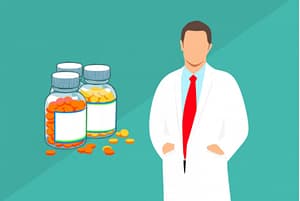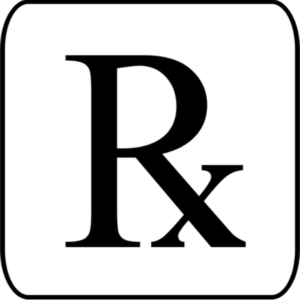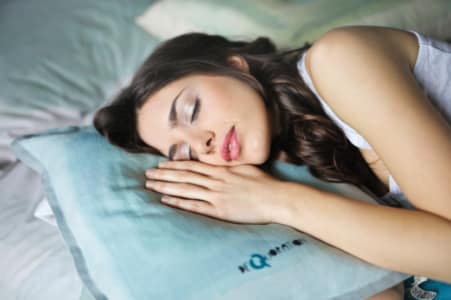Treatments for insomnia that work are worth their weight in gold if you’re one of the many men and women who suffer from insomnia. Insomniacs are all too aware how infuriating it can be to lie in bed for hours, tossing and turning, trying to get to sleep. Yet, the harder you try, the less likely it seems that you will actually doze off.
Many people struggle with insomnia at some point in their lives, and there are a variety of methods that can help them get the rest they need. There are many treatments for insomnia, both pharmaceutical and natural. And while everyone’s experience with insomnia is different, there are some treatments that work for most people. Here are some of the best:
Over-the-counter insomnia treatments
I
Diphenhydramine
is a common over-the-counter medication that is often used to treat insomnia. The brand name for the sleep aid is Nytol. This medication works by targeting the regions of the brain that are responsible for regulating sleep, promoting relaxation and helping people fall and stay asleep (2). Diphenhydramine can be effective for many people and has been shown to be safer than prescription sleep aids.
However, it is important to consult with a doctor before using diphenhydramine, especially if you have any pre-existing medical conditions or a history of substance use. In addition, it is crucial to follow the dosage instructions carefully, as too much of this medication can cause several unwanted side effects, such as nausea, constipation, and can even affect vision (3). Overall, diphenhydramine can be an excellent treatment option for those suffering from insomnia, but it should always be taken with care and caution.
Doxylamine
is an over-the-counter treatment for insomnia. It is a sedating antihistamine that works by blocking the action of histamine, a neurotransmitter that plays a role in wakefulness (4). Doxylamine is typically taken half an hour before bedtime. People who take doxylamine may experience side effects such as dry mouth, drowsiness, and headaches.
Doxylamine is generally considered safe when taken as directed. However, it should not be used by people with certain medical conditions, such as asthma, glaucoma, or bladder problems. Consult with a healthcare provider before taking doxylamine to make sure it is safe for you (5).
Melatonin
Another option is to take melatonin, a hormone that is produced naturally by the body and helps to regulate sleep cycles. Melatonin levels can be disrupted in people with insomnia, due to poor sleep hygiene, lifestyle or bedroom environment. Melatonin supplements are available over the counter, and they can be an effective way to improve sleep quality.
Research has shown that melatonin can help people fall asleep more quickly and improve sleep efficiency, meaning that people who take it spend more time actually sleeping. Melatonin can also be helpful for people who have jet lag or who work night shifts.
When taking melatonin for insomnia, it is important to take it at the right time. For most people, the best time to take melatonin is one to two hours before bedtime. This gives the body enough time to absorb the supplement and start to feel sleepy. However, everyone is different, so it may take some trial and error to find the best time for you.
In general, melatonin is safe for most people to take, although there are some side effects. These include feeling drowsy during the day, nausea and dizziness. Some people may experience more serious side effects, such as confusion, fainting and depression.
For these reasons, it is important to speak with a doctor before taking a melatonin supplement, especially if you have an existing health condition. People with auto-immune diseases should not take melatonin, so they will need to find alternative treatments, or follow a strict sleep hygiene regimen (6).
Prescription Sedatives

When it comes to treating insomnia, prescribed anti-depressant drugs are often one of the most effective options. These medications work by boosting levels of certain neurotransmitters in the brain, such as GABA. This has a calming and relaxing effect. By increasing these chemical messengers, these drugs can help to improve sleep quality, allowing patients to get the rest they need to feel rested and alert during the day (10). There can be side effects associated with focus, which may affect driving and performance the next day (11). Other side effects, such as agitation or sexual dysfunction, can also occur in some people (12).
However, for many patients, these side effects are more manageable than the problems caused by ongoing insomnia. So if you’re struggling with sleepless nights, talk to your doctor about whether taking a depression medication could help you get better sleep and improve your overall health and well-being.
With all that being said, if you already take medication or do not wish to risk the side effects of insomnia drugs, you may prefer to try interventions that don’t involve popping pills. Thankfully, there are a few effective treatments for insomnia that you can try.
Cognitive Behaviour Therapy

Other techniques that are commonly used for insomnia treatment include relaxation exercises, guided imagery, pleasant waking routines, stimulus control strategies, planned awakenings, and healthy lifestyle changes (14). Whether used alone or in combination with medication, these interventions can be an effective tool for helping people get the rest they need.
Acupuncture

While acupuncture is often used for pain relief, it can also be effective for treating insomnia. It is thought that acupuncture works by stimulating the release of neurotransmitters that promote relaxation and relieve stress. These include GABA and serotonin (16). If acupuncture is something you wish to try as a treatment for insomnia, it is important to consult with a qualified practitioner to ensure that the needles are inserted correctly.
Acupressure

In addition, acupressure can reduce stress levels, both of which can be helpful in treating insomnia (18). While there is no one-size-fits-all approach to insomnia treatment, acupressure may be an effective option for those who are looking for a natural and drug-free way to improve their sleep.
In Conclusion
As illustrated, there are many ways to overcome insomnia, whether with medication, good sleep habits, or alternative therapies. All are proven to work; it just depends which one sits right with each different person. Our article Biohacking Sleep is worth a read, providing related details on what might help improve your sleeping condition.
In conclusion, insomnia can be a very frustrating condition to live with. However, there are many treatments available that can help. It is important to consult with your physician and pharmacist to make the best plan for you. Educating yourself on the different treatments available will help you make the most effective and safest plan possible.
References
- Over the Counter Sleep Aids https://www.sleepfoundation.org/sleep-aids/over-the-counter-sleep-aids
- Diphenhydramine https://www.nhs.uk/medicines/diphenhydramine/
- Diphenhydramine https://medlineplus.gov/druginfo/meds/a682539.html
- Review of the histamine system and the clinical effects of H1 antagonists: Basis for a new model for understanding the effects of insomnia medications https://www.sciencedirect.com/science/article/abs/pii/S1087079212000962?via%3Dihub
- Doxylamine https://medlineplus.gov/druginfo/meds/a682537.html
- Melatonin for sleep problems https://www.nhs.uk/medicines/melatonin/
- Zolpidem https://www.nhs.uk/medicines/zolpidem/
- Benzodiazepines https://www.dea.gov/sites/default/files/2020-06/Benzodiazepenes-2020_1.pdf
- Prescription sleeping pills: What’s right for you? https://www.mayoclinic.org/diseases-conditions/insomnia/in-depth/sleeping-pills/art-20043959
- Benzodiazepines as antidepressants: does GABA play a role in depression? https://pubmed.ncbi.nlm.nih.gov/8573660/
- Insomnia beyond Benzodiazepines: Pharmacology, Clinical Applications, and Discovery https://pharmrev.aspetjournals.org/content/70/2/197
- Sleeping pills and minor tranquillisers https://www.mind.org.uk/information-support/drugs-and-treatments/sleeping-pills-and-minor-tranquillisers/side-effects-of-benzodiazepines/
- Treatment of Adult Insomnia With Cognitive–Behavioral Therapy https://www.ncbi.nlm.nih.gov/pmc/articles/PMC4294319/
- Behavioral interventions for insomnia: Theory and practice https://www.ncbi.nlm.nih.gov/pmc/articles/PMC3554970/
- Efficacy of Acupuncture for Primary Insomnia: A Randomized Controlled Clinical Trial https://www.hindawi.com/journals/ecam/2013/163850/
- About Stress https://holistic-health.org.uk/acupuncture-oxford/acupuncture-for-stress/
- Pressure points to help you fall asleep https://www.medicalnewstoday.com/articles/327274
- Effectiveness and Characteristics of Acupressure for Elderly with Insomnia: A Systematical Review https://juniperpublishers.com/gjidd/GJIDD.MS.ID.555586.php

